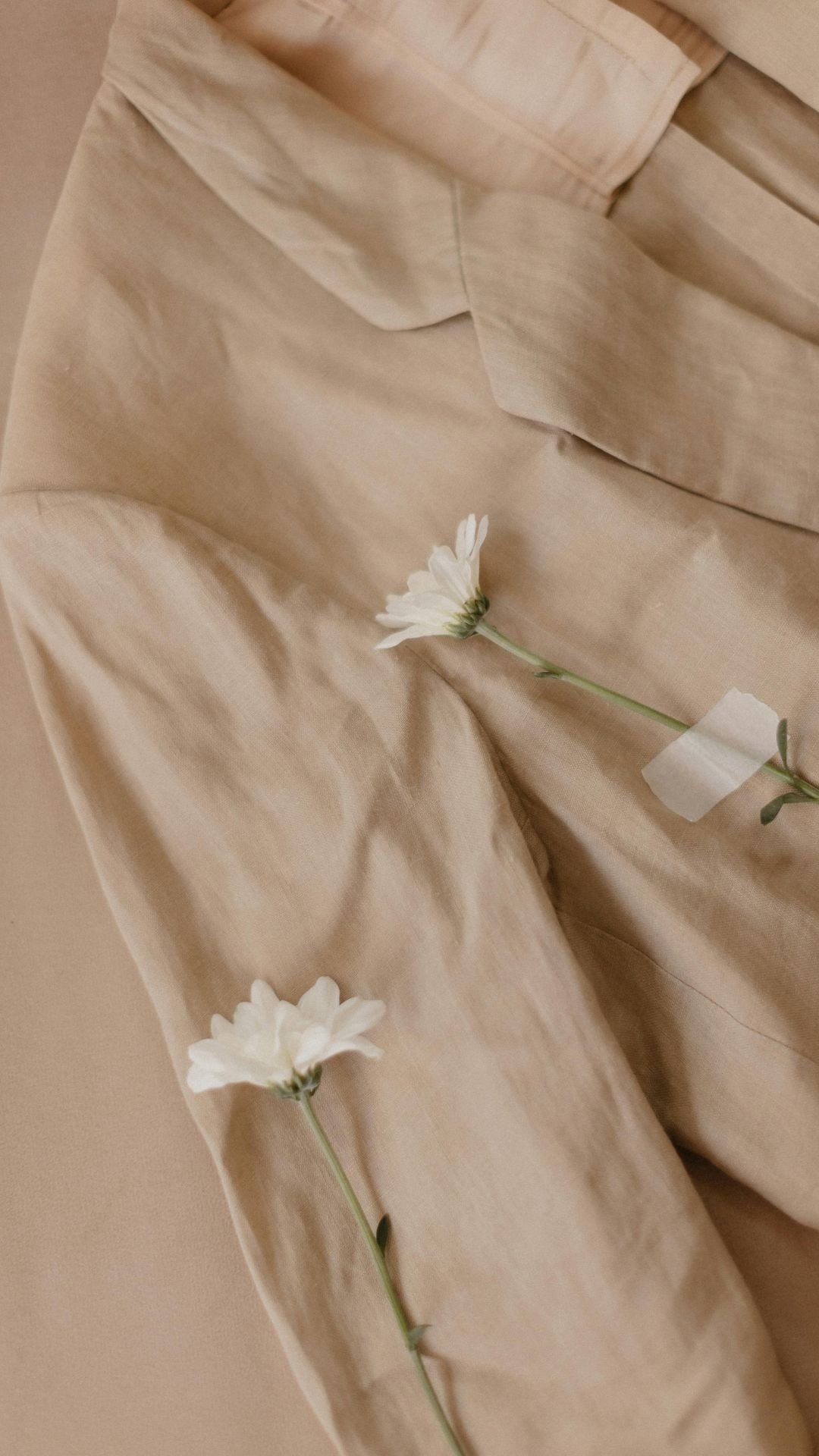Innovations in Eco-Friendly Fabrics: What's New in 2024?
In 2024, the fashion industry sees a surge in eco-friendly fabric innovations. This guide covers the newest materials and technologies driving sustainable fashion forward.
In the ever-evolving world of fashion, the spotlight has increasingly focused on sustainability, giving rise to innovations that promise a greener future. The year 2024 marks a significant milestone in this journey, with groundbreaking advancements in eco-friendly fabrics leading the charge. This article delves into these innovations, exploring the new materials and technologies setting the bar for eco-friendliness in the industry.
The Rise of Eco-Friendly Fabrics
The fashion industry, historically notorious for its hefty environmental footprint, is undergoing a transformative shift towards sustainable practices. This change is driven by a growing awareness of the urgent need to reduce waste, water usage, and carbon emissions. Eco-friendly fabrics emerge as a cornerstone of this movement, offering a pathway to a more sustainable future.
2024’s Breakthrough Eco-Friendly Materials
Plant-Based Fabrics
This year has seen the introduction of innovative plant-based textiles that push the boundaries of sustainability. Algae and banana fiber are at the forefront, offering biodegradable and highly sustainable alternatives to traditional materials. These plant-based fabrics not only reduce the environmental impact but also introduce new textures and aesthetics to the fashion palette.
Recycled Materials
Technological advances have significantly improved the recycling processes for polyester and cotton, turning post-consumer waste into high-quality fabrics. This circular approach not only conserves resources but also reduces the fashion industry's reliance on virgin materials, paving the way for a more sustainable production model.
Lab-Grown Fabrics
Lab-grown materials are making headlines for their ability to mimic natural fibers without the environmental toll. These fabrics, created in controlled environments, offer a sustainable alternative to resource-intensive materials, reducing the need for land and water use, and eliminating the use of pesticides.
Technologies Revolutionizing Fabric Production
Waterless Dyeing Processes
New dyeing technologies are revolutionizing the industry by significantly reducing water consumption. These waterless processes not only minimize environmental impact but also offer a broader range of vibrant colors, enhancing the aesthetic appeal of eco-friendly fabrics.
Energy-Efficient Manufacturing
The push towards reducing energy consumption in fabric production has led to the development of more efficient manufacturing processes. These advancements not only lower the carbon footprint of fabric production but also contribute to the overall sustainability of the fashion industry.
Biodegradability and Recycling
Enhanced technologies in biodegradability and recycling are ensuring that textiles at the end of their life cycle can be returned to the ecosystem or efficiently recycled, minimizing waste and encouraging a circular economy in fashion.
Sustainability Beyond the Material
Ethical Sourcing
Transparent supply chains are crucial in sustainable fabric production, ensuring that materials are ethically sourced and workers are treated fairly. This transparency is key to building trust with consumers who are increasingly concerned with the ethical implications of their fashion choices.
Lifecycle Analysis
Evaluating a fabric's entire lifecycle, from production to disposal, is essential for assessing its environmental impact. Lifecycle analysis helps in identifying areas for improvement and ensuring that eco-friendly fabrics live up to their promise of sustainability.
Consumer Impact: How to Choose Eco-Friendly Fabrics
Understanding Labels
Navigating eco-certifications can be challenging, but understanding what labels such as Organic, Fair Trade, and Recycled mean is crucial for making informed choices. These certifications are a testament to a product's sustainability and ethical production practices.
The Role of Consumers
Consumer choices play a pivotal role in driving the industry towards sustainability. By opting for eco-friendly fabrics and supporting brands that prioritize sustainability, consumers can have a significant impact on the fashion industry's environmental footprint.
The Future of Sustainable Textiles
The journey towards sustainable textiles is ongoing, requiring continuous innovation, investment, and commitment from all stakeholders. Policy changes and consumer education will play a crucial role in supporting the growth of eco-friendly fabrics, ensuring that sustainability becomes the norm rather than the exception in fashion.
The advancements in eco-friendly fabrics in 2024 are a beacon of hope for a sustainable future in fashion. These innovations not only offer environmentally friendly alternatives but also pave the way for a new era of sustainability in the industry. As consumers, it's our responsibility to support and demand sustainable textiles, shaping a better world with our choices.
Spotlight on Pioneers: Real-World Eco-Friendly Innovations
The fashion industry's journey toward sustainability is paved with innovative brands and designers leading the charge in eco-friendly practices. For instance, Patagonia continues to set high standards with its commitment to recycled materials and ethical production methods. Their introduction of the ReCrafted collection showcases how discarded garments can be transformed into high-quality, desirable pieces, proving that sustainability and style can coexist.
Another notable example is Bolt Threads, a biotechnology company that has developed Mylo, a sustainable leather alternative made from mycelium (mushroom roots). Collaborating with brands like Stella McCartney, they're pushing the boundaries of biofabricated materials in high fashion, demonstrating the vast potential of lab-grown fabrics.
Empowering Consumer Choices: Practical Tips for a Sustainable Wardrobe
Creating a sustainable wardrobe goes beyond purchasing eco-friendly fabrics; it's about adopting practices that extend the life of your garments and support a circular fashion economy. Here are some practical tips to get started:
Invest in Quality: Choose high-quality pieces that last longer, reducing the need for frequent replacements.
Care Wisely: Follow care instructions carefully to extend the life of your garments. Consider air-drying and using eco-friendly detergents.
Repurpose and Upcycle: Get creative with old clothes. A simple DIY project can breathe new life into a piece that would otherwise be discarded.
Support Sustainable Brands: When shopping, prioritize brands committed to ethical and sustainable practices.
Dive Deeper: Further Resources on Sustainable Fashion
For those eager to explore more about sustainable fashion and how to incorporate eco-friendly practices into your lifestyle, here are some valuable resources:
Fashion Revolution: A global movement calling for a fairer, safer, cleaner, and more transparent fashion industry.
Good On You: A comprehensive guide to ethical and sustainable fashion brands, helping consumers make informed choices.
The Sustainable Edit: A blog focusing on minimalist fashion and living sustainably without sacrificing style.
Ellen MacArthur Foundation: Offers insights into the circular economy and its application within the fashion industry.
Let's embrace these innovations, champion sustainable fashion, and move towards a greener, more responsible fashion industry together. Share your thoughts and experiences with sustainable fashion in the comments below, and let's spread the word by sharing this article. Together, we can make a difference.
-
At The Green Muse, our mission is to inspire a movement towards sustainable living and conscious consumerism. We believe in the power of informed choices and the impact they have on our world. Our commitment to you, our readers, is not just to offer curated insights into sustainable fashion and lifestyle but to do so with the utmost integrity and transparency.
To ensure that the information we share is both timely and relevant, we utilize a range of advanced AI search platforms. These tools assist us in gathering the latest research, insights, and trends within the sustainability sector. It is important to us that you know the foundation of our content is built upon the comprehensive data and analysis these AI technologies provide.
However, we also acknowledge the limitations and evolving nature of AI-generated information. While these platforms are powerful, they are not infallible. Our team diligently cross-references this information with credible sources to ensure accuracy, but we encourage our readers to engage critically with the content we provide.
We pledge to continuously strive for accuracy, relevance, and reliability in everything we publish. Our aim is not just to inform but to empower you to make choices that align with our shared vision for a sustainable future. We invite you to join us in this journey, armed with knowledge, to shape a world that benefits all.
Transparency is the cornerstone of trust. Therefore, we openly share our process with you, our valued readers. By understanding the tools and methods behind our content, we hope to reinforce your confidence in the information we provide. Together, let's forge a path towards a more sustainable and conscious world.
The Green Muse is more than a blog; it's a call to action for meaningful and responsible living. Thank you for trusting us as your guide on this journey.
-
Welcome to The Green Muse, where our journey in sustainable fashion and conscious consumerism is not just a passion, but a way of life. As part of our commitment to transparency and integrity, we want to inform you about the presence of affiliate links in some of our content.
What Are Affiliate Links?
Affiliate links are special URLs that track the referrals from our website to product or service providers. When you click on these links and make a purchase, we may receive a commission at no additional cost to you.
Our Promise to You
Every product or service we promote is carefully vetted for quality and sustainability. Our affiliate relationships do not influence our content; instead, they support our mission to provide you with the best in sustainable living. The trust you place in us is paramount, and our recommendations are always genuine and aligned with our core values.
Your Role in Shaping a Better World
By choosing to shop through our links, you're not just buying; you're participating in a movement for responsible, meaningful living. Together, we can make a global impact that benefits all.
Thank You for Your Support
Your trust in The Green Muse means everything. Thank you for joining us on this journey. Remember, every purchase you make is a step towards shaping a better, more sustainable world.
-
While we strive to keep all information current and relevant, the dynamic nature of our affiliate partnerships means that occasionally, some links in our articles may expire or no longer be accessible, through no fault of our own.
This is part of the evolving landscape of sustainable fashion and lifestyle, where brands and products are constantly adapting.
We encourage you to continue your journey toward ethical and sustainable practices by using these articles as a starting point. As you explore, feel free to seek out alternative options that align with your principles and aesthetics, keeping the spirit of conscious consumerism alive.
-
We're passionate about bringing you visually captivating content that complements our commitment to sustainable living and conscious consumerism. We need to note that the stunning images enhancing our articles are sourced from Pexels, Unsplash, Getty Images, and Canva – platforms we admire for their vast collections of free-to-use photographs. While we cherish the beauty these images add to our narratives, we acknowledge that the copyright and ownership rights belong solely to their talented creators. We don't claim any ownership; instead, we celebrate and encourage our community to explore the work of these artists further. Join us in supporting their incredible contributions to the world of visual storytelling.



Discover the essence of sustainable fashion through the lens of Fair Trade, the Global Organic Textile Standard (GOTS), and the Organic Content Standard (OCS), and learn how they are shaping a more ethical, environmentally conscious world.